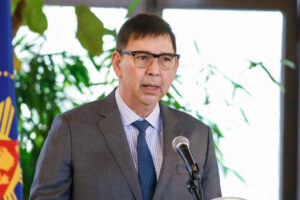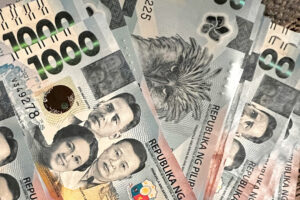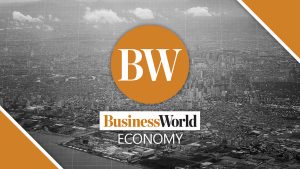Recto does not expect DSPs to pass VAT on to consumers

By Aubrey Rose A. Inosante, Reporter
FINANCE Secretary Ralph G. Recto said digital service providers (DSPs) are likely to absorb the new value-added tax (VAT) on digital services, instead of passing the cost on to consumers.
“Frankly, I don’t expect prices to increase but shouldered by providers,” Mr. Recto told BusinessWorld via Viber.
The government will start to enforce the 12% VAT on digital services consumed in the Philippines on June 1, after President Ferdinand R. Marcos, Jr. signed the law in October.
The VAT was designed to level the playing field for all DSPs, because Philippine companies have to pay VAT, putting them at a disadvantage to foreign platforms such as Netflix, Spotify, Amazon, Lazada.
The Department of Finance has said that the government will generate P102.12 billion in revenue from the VAT between 2025 and 2028.
Digital platforms have started to announce price hikes before the VAT rules take effect.
Last week, Netflix notified consumers of price adjustments to its tiered subscription model, with its lowest-priced offering increasing 13.42% to P169.
Mr. Recto said DSPs stand to lose customers if they start raising prices.
The Philippine Statistics Authority estimates the value of the Philippine digital economy at P2.25 trillion in 2024, up from P2.09 trillion in the previous year.
It accounted for 8.6% of gross domestic product last year.
Analysts said digital platforms are expected to pass on the VAT to consumers, though overall consumption will remain robust.
Minimal Government Thinkers (Manila) President Bienvenido S. Oplas, Jr. said it rare for service providers to absorb added costs and accept reduced income and profit.
“Consumers will bite the bullet on higher prices… but they will continue consuming the service. They will just shift their priorities, say from more hours on Netflix to more hours on work-related streaming and online work,” he said.
Meanwhile, freelancers which often use taxed digital services will learn to pass on the higher cost to their customers as well.
“I think the adverse impact will be negligible. Demand for digital services is inelastic or non-responsive to price changes,” he said, citing the example of food. “Whether the price goes up or stays the same, people will still consume food,” he added.
Ronald B. Gustilo, national campaigner for Digital Pinoys, expects the growth of the digital economy to slow, as most small businesses, freelancers, and individual consumers rely on affordable access to digital tools.
“While taxation is a necessary function of government, its timing and scope must be balanced with the realities of a developing digital ecosystem,” he said via Viber over the weekend.
He also expects digital platforms to follow Netflix’s lead in raising prices.
“This VAT measure could disproportionately impact small businesses, freelancers, content creators, and even students. Many depend on paid tools like design software, cloud storage, and marketing platforms to earn a living. Any added cost can be a barrier to productivity and income generation,” Mr. Gustilo said.




